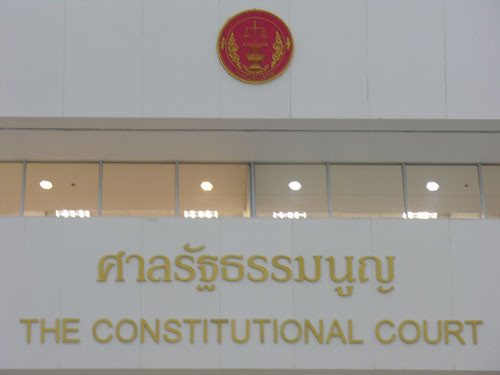Thai government continues to be ruled against
Thailand's Constitutional Court will review the legality of the February 2 general election submitted by the National Election Commission.
On the afternoon of March 12, the Thai Constitutional Court ruled against the Thai government's bill to borrow 2,000 billion baht (equivalent to 66 billion USD) to develop long-term national transport infrastructure.
This is a bill drafted and submitted by the government of Prime Minister Yingluck Shinawatra last year, before the House of Representatives was dissolved on February 9. Accordingly, the bill allows the Ministry of Finance to borrow capital worth 2,000 billion baht to carry out major projects such as: high-speed railway system, high-speed double-gauge railway system...
 |
| The ruling of the Thai Constitutional Court has the highest legal effect and is binding on all social organizations (Photo: Xuan Son) |
While the ruling does not significantly impact the already weakened position of the Thai government, which has been transformed into a caretaker government with limited legal powers after the dissolution of the lower house, it does show that most of the major government decisions under Prime Minister Yingluck Shinawatra have been nullified or cannot be implemented.
These are the amnesty bill to clear the names of those involved in political events from 2006 to 2012, the bill to amend the constitution on the method of electing senators and several bills to amend the constitution to increase the power of executive agencies.
Also this afternoon (March 12), the Constitutional Court of Thailand announced that it has accepted the request to review the legality of the February 2 general election submitted by the National Election Commission and the petition to cancel the general election submitted by the State Inspectorate.
The rulings of the Thai Constitutional Court are of the highest legal significance. In particular, the review and ruling on the legality of the February 2 general election in Thailand is of significant significance. Either Thailand continues to hold new elections in the 28 southern regions that were unable to hold elections in the February 2 general election due to the lack of registered candidates, or Thailand holds a new general election./.
According to VNA
